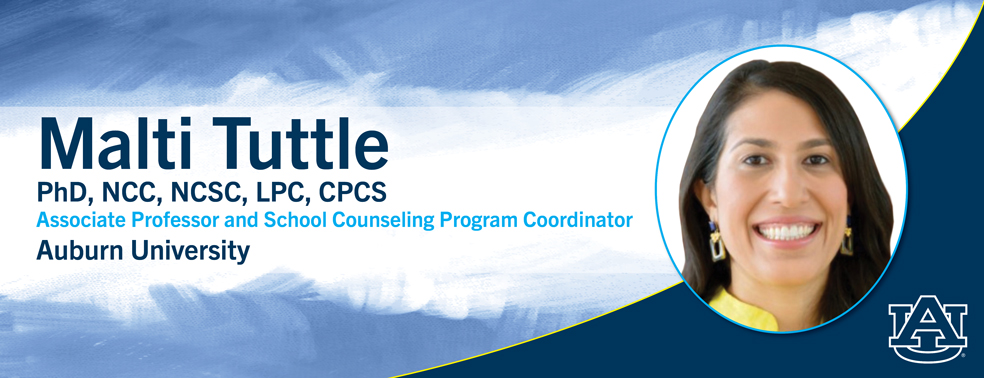
As counselors, one way that we ensure the safety of the public is through mandated reporting of suspected abuse, neglect, domestic violence, and other unsafe environments. According to the Centers for Disease Control and Prevention, about 1 in every 7 children has experienced abuse or neglect, and the total lifetime economic burden of child abuse and neglect in the United States in 2018 was $592 billion.
Although other professionals, including health care providers, school and law enforcement personnel, social workers, day care providers, and others, are also legally required to report these circumstances, the laws differ from state to state.
This month we interviewed Malti Tuttle, PhD, NCC, NCSC, LPC, CPCS, associate professor and school counseling program coordinator in Auburn University’s Department of Special Education, Rehabilitation, and Counseling. Dr. Tuttle co-authored the 2019 The Professional Counselor article “A Child Abuse Reporting Framework for Early Career School Counselors” with Lacey Ricks, PhD, NCC, and Margie Taylor, PhD, LPC, LPC-S. The article addresses how a lack of reporting procedures, fear of repercussions, and limited training in identifying types of abuse can cause distress among early career school counselors and stresses the importance of having a collaborative framework to help counselors with these processes.
When building this sort of framework, first and foremost it is imperative for counselors to understand that mandated reporting is a legal and ethical mandate, Dr. Tuttle says.
“You must identify and know the laws, know your school district’s protocol, and know what procedures your state has in place for reporting suspected child abuse. Examine current protocols, and if there aren’t any, bring key personnel and stakeholders together to develop a protocol. Seek training for everyone who is employed at the school level, and build partnerships with school administrators and personnel, law enforcement, your district’s attorneys, CPS supervisors, and child advocacy centers.”
Because policies, procedures, and state laws for reporting requirements differ from state to state and may change, being well-informed in this area is crucial.
“Definitely stay current by attending trainings, asking your district to provide annual trainings and meetings with CPS and law enforcement,” Dr. Tuttle says. “Request for the district’s attorney to meet with school counselors to provide updates and information on state laws. And if you move to another district and/or state, don’t assume their policies, procedures, protocols, or laws are the same as your previous district. Also, keep up to date with your professional associations because they provide vital training on topics that are imperative such as ethics, mandated reporting, advocacy, and maintaining the safety of students. For example, the American School Counselor Association just revised their ethical standards, including the section on child abuse.”
As counselors become more informed, they can then share what they’ve learned with other school employees through trainings, literature, handouts, and other resources.
Counselors interested in designing child abuse prevention programs in their schools should look at what may already be available in their district, Dr. Tuttle says, adding that there are some existing evidence-based programs in place that may be helpful to research.
“Another suggestion is to collaborate with outside agencies,” she says. “Several agencies have programs available to schools and are willing to partner with them.”
Counselors must create a feeling of safety and trust with those they serve to do their best work, minimizing undue harm and taking particular care of those who are vulnerable. Any reasonable suspicion of maltreatment should be reported immediately—and properly—so that it can be investigated. Mandated reporting is a moral, ethical, professional, and legal obligation that saves lives.
“Schools counselors absolutely must remain active in receiving and seeking mandated reporter training,” Dr. Tuttle stresses, “keeping up with new laws and reporting procedures, maintaining membership in professional associations, building partnerships with stakeholders and community agencies, consulting, and advocating for their students.”